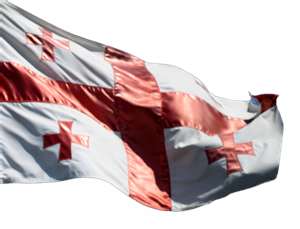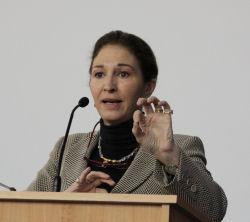The Fight for Libya’s Oil
While the remaining forces loyal to Muammar Gaddafi still hold out against the rebel militia and its NATO allies in the coastal town of Sirte, the fight for Libya’s oil has already begun. Europe’s oil companies are hovering like a flock of carrion birds over the carcass of Gaddafi’s regime. The pickings to be had are significant. Libya accounts for 2% of global oil production, but the development of new fields could see that figure double in the next decade. Proven reserves of 46.4 billion barrels are confirmed, but vast tracts of the Libyan deserts remain unexplored. Europe’s oil giants Eni, Total, BP and Repsol YPF are perfectly positioned to take advantage of these commercial opportunities. Gas production, too, has …
Egypt’s Slow Coup: Mubarak Caged and a Nation on Trial
The television screens did not lie. There he was. An old man in a cage. The cage was in a Cairo courtroom, and the baying crowd in the gallery were screaming for his conviction, sentence and execution. Those watching the television broadcasts across the Arab world on 3 August could hardly believe their eyes. Here was Hosni Mubarak, once the proud, aloof and resolute leader of Egypt, now shackled like a common criminal and placed on trial for charges that might result in a death sentence. Had the world gone crazy? The indictment of Hosni Mubarak is an iconic moment in the history of the Arab Spring, indeed in the history of the Arab world. The revolutions that have swept …
The elephant in the tent: social and political justice, Tel Aviv, August 2011: a response to Or Rosenboim
Tel Aviv has known many hot summers in its history. But 2011 will probably be remembered as an exceptionally burning summer, one in which the city was flooded by tents occupied by young middle class residents, protesting against the rise in the cost of living. As Or Rosenboim argues, these protests were characterised by the claim to “go beyond the political”, to ask for social justice, referring to the colloquial distinction between issues relating to security and defence, and particularly, the Israeli-Palestinian conflict, regarded as “the political”, and “the social”. I wish to argue that these protests are closely interlinked to questions of foreign policy even though they put in much time and effort to avoid them. In a video …
Why Reinhold Niebuhr?
Pardon the self-promotion: I reviewed a new book on Reinhold Niebuhr, a theologian and realist political thinker during the Cold War, in last week’s Economist. Niebuhr died in the 1970’s but both Democrats and Republicans lean on his advice (even if misread) to guide their modern foreign policy views. Here is a snippet from my review of the book, Why Niebuhr Now?, by John Patrick Diggins, the late American intellectual historian. AFTER years in the doldrums, Reinhold Niebuhr, an American theologian, is enjoying a comeback. Although Niebuhr died in 1971, he is nowadays often name-dropped in opinion columns and highbrow chat as the ideal mind to help guide 21st-century political leaders through the ups and downs of world affairs. It …

Russia-Georgia Relations
There is a lot of talk around Russia-Georgia relations these days. One venue is the current “Geneva Process,” established in 2008 to attempt to sort out the mess created by the Georgian-Russian war. After seventeen meetings, there is no evidence of any significant progress. There is also a substantial array of informal processes involving all kinds of well-intentioned people from London, Washington, Georgia and Russia. They haven’t had any discernible impact either. Outsiders have a substantial interest in the normalization of the bilateral relationship. The situation between Georgia and Russia complicates the Western reset of relations with the Russian Federation. The unresolved conflict between the two obstructs Russia’s accession to the World Trade Organization. Although the situation on the ground …
Bin Laden vs. Kadyrov: the war on terror and Russian identity construction
Iver Neumann, an authoritative researcher of Russian affairs, claimed in his central work ‘Russia and the idea of Europe: a study in identity and international relations’, that Europe has always been an important ‘Other’ when it comes to how Russia constructs and sustains its identity. Whilst this still seems to be the case, it could be argued that Europe is only one Other in the story of Russia’s constant invention and reinvention of its own identity. After World War II, Russia’s favourite choice of Other became split. Europe became (and remains) the preferred Other in relation to Russia’s view of its internal organisation – state, society, and culture. However, the United States has taken the prime position in relation to …

Professor Anne-Marie Slaughter Discusses New Shifts in US Diplomacy
Professor Anne-Marie Slaughter Discusses New Shifts in US Diplomacy
Play Episode
Pause Episode
Mute/Unmute Episode
Rewind 10 Seconds
1x
Fast Forward 30 seconds
00:00
/
Subscribe
Share
RSS Feed
Share
Link
Embed
Download file | Play in new windowOn May 18, 2011 Professor Anne-Marie Slaughter delivered the inaugural Distinguished Fulbright Lecture in Oxford. The topic: The Turn: US Foreign Policy from 2009 to 2011. The key message I took away from the lecture was that during the Obama Presidency, US diplomatic missions have shifted their focus more towards societal actors. The nature of US diplomacy has expanded from acting almost exclusively on a government to government basis, to interacting with societal actors or even acting as a facilitator between societal actors in different countries. This change in diplomacy is part of the emergence of a new paradigm driving the US Foreign Policy post “9/11”. In this paradigm, separation gives way to interconnectedness, conflict to collaboration; and the sole …
Bin Laden Location is Humiliation for Pakistan
Whichever way you look at it, the discovery and killing of Osama bin Laden in a comfortable house in Abbottabad within walking distance of Kakul (Pakistan Military Academy) and a short drive from the nation’s capital Islamabad, constitutes an abject humiliation for Pakistan. The options are limited. Either the Pakistani authorities did not know that bin Laden was there, apparently for several years. In which case their incompetence is so colossal that it should cause widespread panic, except that it beggars belief. Or the Pakistani authorities knew of bin Laden’s presence in their midst. In which case the worst cynics have been proved right. There are some tell-tale pointers as to which of these is more likely to be true. …









